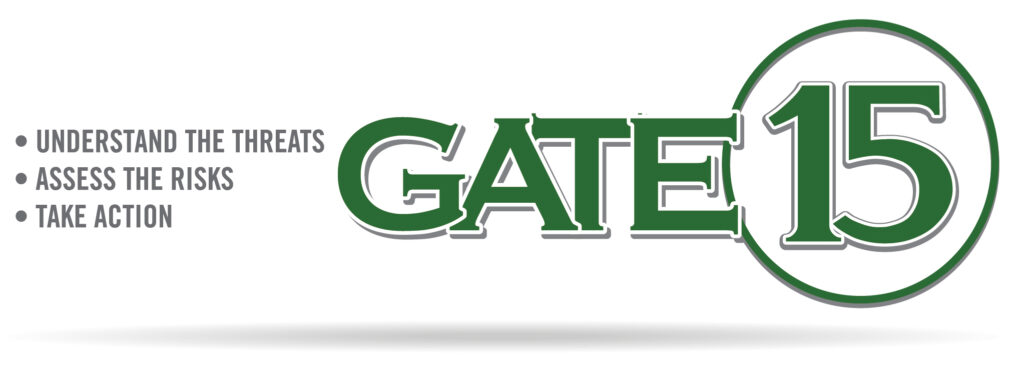The terms we use for threats are important as they should help to clearly identify what we’re talking about and to distinguish one threat from another. This can be difficult in both physical and cyber security.
TL;DR
- We will use the term Daesh to refer to the Islamic State/ISIS/ISIL.
- We will use Foreign Ideological Extremists (FIE) to refer to the broader umbrella of international violent extremist groups (al-Qa’ida (AQ), Hizballah, al-Shabaab, Daesh, etc.) as identified on the Department of State’s Foreign Terrorist Organizations list.
- We will use the term Domestic Extremists to refer to the broad umbrella of U.S.-based extremists.
In the cyber world, we often see adversary groups confusingly named differently by various security teams and the government. Take Fancy Bear, as an example. Is it Fancy Bear, or is it APT 28? Pawn Storm? Who is Sofacy, maybe? Is it a group, is it malware? They’re Russian, right…?
“A threat group associated with Russia’s General Staff Main Intelligence Directorate (GRU) 85th Main Special Service Center (GTsSS) military unit 26165, and believed to be responsible for compromising the Hillary Clinton campaign, the Democratic National Committee, and the Democratic Congressional Campaign Committee in 2016 in an attempt to interfere with the U.S. presidential election.”
an example of a Jeopardy! “answer” that could be posed to competitors
The Jeopardy! team wouldn’t know when the correct question was offered. For what it’s worth, a great way to figure out who a group is, is to use MITRE ATT&CK. ATT&CK offers a lot more than than, but it does also offer a way to know who’s who. From this link you can dive into Fancy Bear, or, er, APT28…
On the terrorist/extremist end of things, it is getting more complicated than ever. It seems like only recently the only contested issue may have been how to refer to overseas religious extremism. Today, we also are wrestling with the many types of domestic extremists. From Domestic Violent Extremists to Racially-Motivated Violent Extremists, to White Racially or Ethnically Motivated Extremists, to Black Racially and Ethnically Motivated Violent Extremists, to incels… in the world of many motivations and salad bar terrorism, the ways to identify one’s hate are almost endless…
Through the many communities we get to work with, we are fortunate to hear a lot of thoughtful perspective. We try to take that in and be respectful of it as we go about our business. Recently, through our work with the faith-based community, it was made clear to us that using the term “Islamic State” unfairly associates the religion of Islam – which is practiced peacefully by the vast majority of the world’s 1.8 billion Muslims – with terrorism. While there are Islamic terrorists, that is a small and unrepresentative portion of the Muslim world. We want to support the idea to separate the words Islam, Islamic, and Muslim from vile groups that promote terror and hate.
- We will use the term Daesh to refer to the Islamic State/ISIS/ISIL.
- We will use Foreign Ideological Extremists (FIE) to refer to the broader umbrella of international violent extremist groups (al-Qa’ida (AQ), Hizballah, al-Shabaab, Daesh, etc.) as identified on the Department of State’s Foreign Terrorist Organizations list.
- We will use the term Domestic Extremists to refer to the broad umbrella of U.S.-based extremists.
In our evolving threat landscape, we will continue to strive to use specific, appropriate and respectful terms to refer to various threats.

It can be challenging to refer to groups and ideologies and not come off as offensive towards some. In sharing open source information, which we do in a lot of ways (to include our free daily paper), we post headlines that may use terms or names that may cause frustration. For example, while we will avoid writing “Islamic State,” we will inevitably share links in our papers and reports that make that reference. Staying with religion, today, as we see more discussion of concerns such as “Christian Nationalism,” we don’t intend to suggest most Christians are promoting extremism or subscribe to any particular belief, but we have to attempt to use terms and report information to inform threat and risk awareness.
Similar issues arise when we report on government actions. If we share a story on an Executive Order by the President, or a statement from the White House or Congress, we are not agreeing or disagreeing with the information or the idea being presented, but sharing it to help inform awareness and understanding. Without context, the headlines themselves are easily misinterpreted. Through our analysis, writing, presentations, and other public and client work, we try to provide more complete perspective on these issues, and strive to do so in an unbiased manner, focusing on the threats, risks, and operational activities we encourage organizations and individuals to take. We recognize that all individuals have bias and opinions, and our team has a wide variety of those, on all issues from sports to politics! But as professionals, we strive to overcome our biases and preferences and provide logical, homeland security-focused analysis and perspective.
Words do matter, and we will continue to monitor threats and to strive to use fair and respectful terms to refer to groups and individuals. Feedback is always welcome.
Understand the Threats.
Assess the Risks.
Take Action.
Understand the threats! Subscribe to our free daily paper and subscribe to our podcasts!
Take action! Our team is here to help you build the relationships and capabilities you need and to assist in the development of plans, training, and exercises to support your ability to prevent, protect against, mitigate, respond to, and recover from the threats and hazards that pose the greatest risk to your organization in our complex, all-hazards environment.
